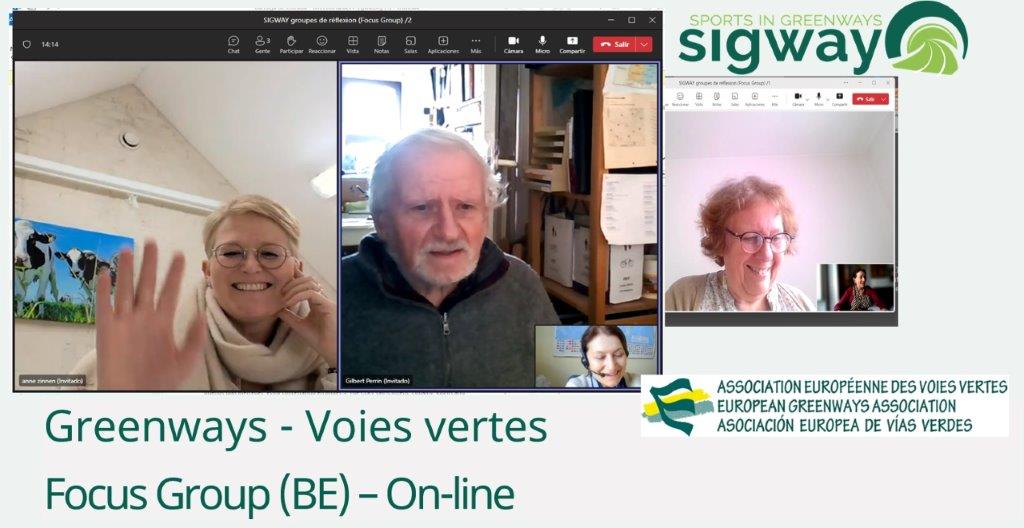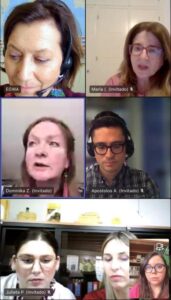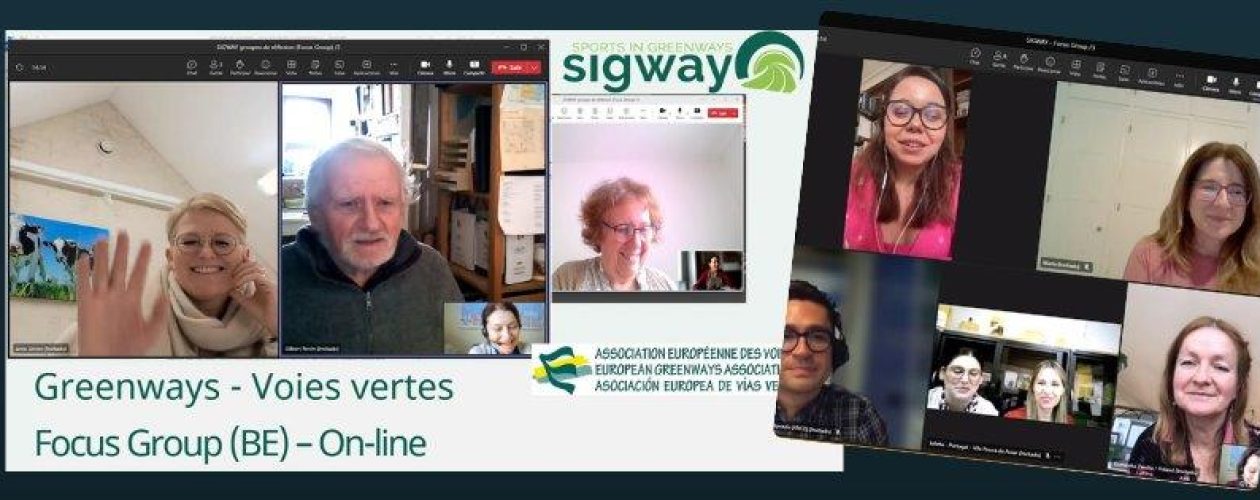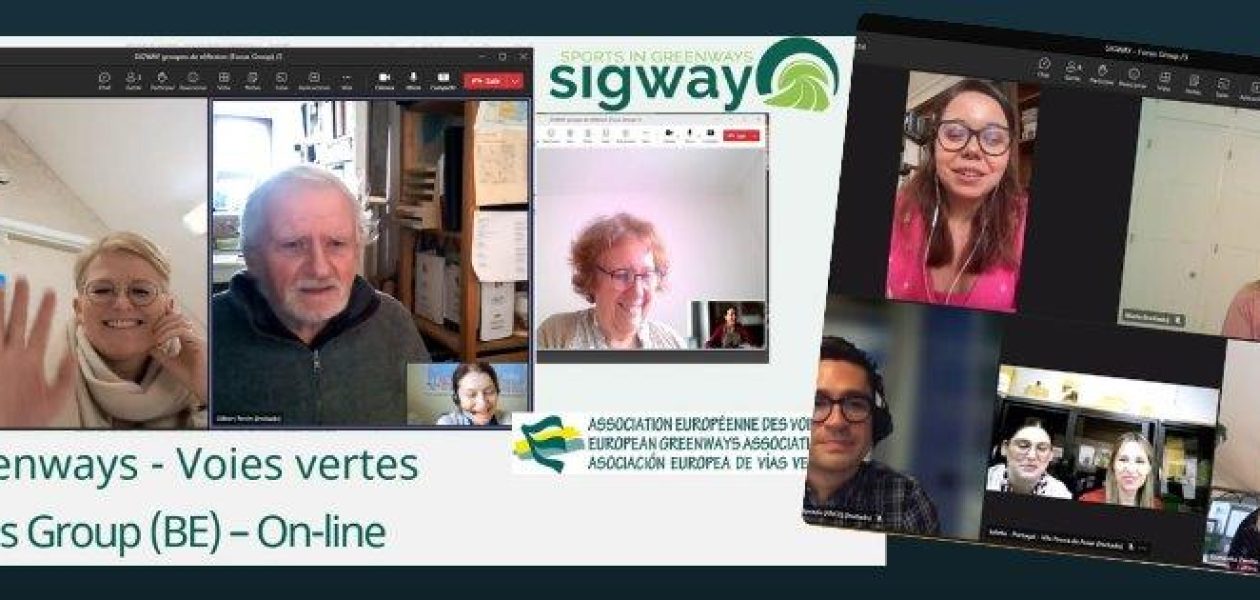-
Focus group meetings in the framework of the SIGWAY Project.
-
EGWA has organised three meetings, two addressed to Belgian representatives, and the third open to EGWA members at European level.
-
Objective: to analyse and propose actions to transform abandoned railway lines into greenways, and/or better use.
The aim of these meetings has been to analyse and propose actions to transform abandoned railway lines into greenways, and/or better use, in the case where they are already transformed, to improve the local economy and revitalise rural areas through sports and for physical and tourist activity
EGWA has organised three focus meetings; the first two addressed to Belgian representatives, and the third open to EGWA members at European level. The variety of representatives, with a wide range of real-life experience, has allowed a rich and realistic exchange of points of view.
In the case of Wallonia (BE), the priorities are now more focused on the connection of greenways and the improvement of existing ones. This is because the Walloon region has a well-developed and long-established greenway programme – the first greenway route was realised almost 30 years ago, and the vast majority of disused railway lines have already been converted. The progress of the potential greenways identified in the previous phase of the SIGWAY project reflects these connection and improvement actions.
Some common issues raised in the meetings include:
- Budget, public administrations have an essential role in the implementation of greenways and, in particular, in the rehabilitation of major railway infrastructure works – viaducts, tunnels which small municipalities cannot afford.
- Maintenance is the only way to keep infrastructure alive. All those responsible must commit to maintenance from its creation.
- Governance and local cooperation are essential for maintenance, promotion and making the most of the greenways.
Other findings from the open focus group, in which have participated EGWA members at European level, are aimed at:
 The cost of renting the land to the railway companies that own the land represents a great handicap for small rural municipalities; who already have to face the cost of maintaining the greenway, with very limited resources. Portugal’s solution, exchanging rent for maintenance, provides a solution to this serious problem.
The cost of renting the land to the railway companies that own the land represents a great handicap for small rural municipalities; who already have to face the cost of maintaining the greenway, with very limited resources. Portugal’s solution, exchanging rent for maintenance, provides a solution to this serious problem.- Issues derived from the fragmentation of maintenance and promotion between different local authorities, which is a great handicap, requiring agreements between the different owners or managers of the greenway. Joint maintenance and promotion of the greenways, not ascribed to municipal, provincial, regional or cross-border boundaries, is essential in order to fully exploit their potential. Even the map of the entire route itself can often be missing, which is a clear issue and a loss of opportunities for these routes.
- Services in the surrounding area. It is very important to take advantage of old railway infrastructure and in particular old railways stations to create a variety of services.
- Regarding the extension or creation of new greenways, the occupation of land for other uses is a serious problem that slows down the transformation; it implies repurchase or expropriation, or a long process to recover the land, which means more time and cost. It is necessary to preserve the trace in its integrity; occupation is a barrier for the continuity.
The feedback from these focus groups will be integrated into the strategy to transform greenways as actively used sports and outdoor infrastructure, in the next phase of the SIGWAY project. Examples of best practices related to these issues will be integrated into the strategy.
=> It is also important to highlight the collaboration of EGWA members in the focus groups meetings of other project partners, in particular from Spain, Italy and Austria.
=> Thanks to SIGWAY, new greenway initiatives have been generated in Slovakia and Greece. We are very excited about this good news, and look forward to providing more information on their progress in the coming months.
Next activities:
>> Preparation of the Strategy and guidelines on how to recover abandoned railways and unused greenways into actively used sport infrastructure. EGWA, activity leader
>> Multipliers events. The results of the Project will be presented in the seven countries represented in the project in September (Spain, Belgium, Portugal, Slovakia, Austria, Greece, Italy).
In the case of the EGWA, the national event will be held in Wallonia in Belgium, in collaboration with Chemins du Rail, linked to the location of the AEVV’s social seat in Namur, as required by the Erasmus project.
>> September: Date to be determined, to be communicated as soon as possible.
In addition, due to its European scope, the association will organise the international multiplier event in Flandres, in collaboration with the Province of Antwerp in Aarschot.
Save the date: 19/ Sep. SIGWAY multiplier event.
Venue: https://www.hetgasthuis.be/ cultural center, located in a beautiful historic building in the centre of Aarschot.
Many thanks to everyone who contributed to the focus groups, really appreciated.

SIGWAY – Sport in Greenway Project is an Erasmus+ Sport Project that runs from May 2022 till October 2024.
The overall aim of the project is to promote sport and healthy leisure activities outdoors by stimulating sports activities offered in greenways and potential greenways, while raising awareness on environmental issues and circular economy. 
Mercedes Muñoz Zamora
European Greenways Association, Director
16/May/2024


